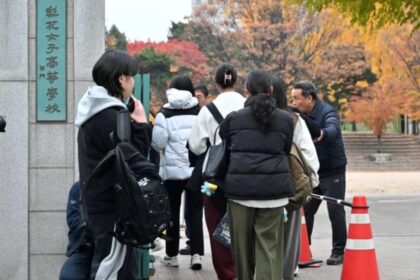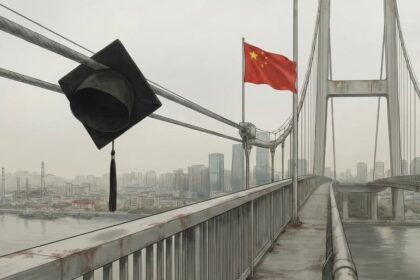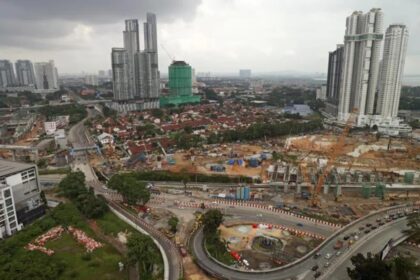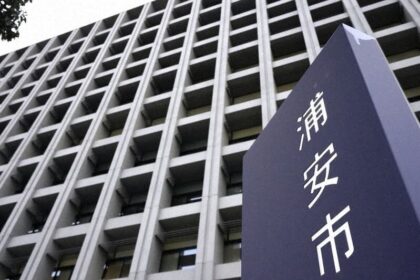A tougher Europe moves from warnings to enforcement
Europe is entering a more assertive phase in its oversight of Chinese companies. Policymakers in Brussels are weighing a plan to phase out Huawei and ZTE equipment from telecom networks. In Paris, officials have threatened to suspend fast fashion platform Shein. In the Netherlands, authorities have imposed extraordinary controls over chipmaker Nexperia, which is owned by China’s Wingtech. For roughly 3,000 Chinese invested enterprises spread across the European Union, employing more than 260,000 people, the rules of the game are changing fast and the cost of compliance is rising.
Security, fairness, and resilience are shaping this shift. European leaders worry about exposure to foreign state subsidies, the transfer of sensitive technologies, and heavy reliance on single suppliers for critical inputs. The war in Ukraine and perceptions of Chinese support for Russia have hardened political attitudes, while Washington’s export controls and investment screening practices have influenced policy thinking in Europe. Companies now face a more complex set of reviews and reporting duties, potential restrictions on public tenders, tighter scrutiny of mergers and acquisitions, and higher expectations on sustainability and labor standards.
The EU’s toolkit has widened in the past two years. The Foreign Subsidies Regulation gives Brussels new investigative powers over subsidized firms in the single market. Investment screening is being expanded and harmonized across member states. Telecom security rules, rooted in the 5G security toolbox, encourage the removal of high risk vendors from critical network parts. Trade defense actions, including higher tariffs on Chinese electric vehicles, add to the pressure. Consumer protection enforcement is becoming more active, and the Corporate Sustainability Due Diligence Directive will require large companies to address human rights and environmental harm in their supply chains. Data privacy under GDPR remains a strict baseline. Together these measures create what many executives describe as a compliance maze that must be navigated with care.
What is driving Brussels
European policymakers say they want to de risk rather than decouple, protecting critical technologies and ensuring fair competition while keeping markets open. The European economic security strategy released in 2023, along with the anti coercion instrument, signaled a commitment to guard against coercive trade practices and supply shocks. The goal is to reduce strategic dependencies and build resilience without cutting ties entirely with major partners.
Telecom security is a central plank. The European Commission is considering a full phase out of Huawei and ZTE equipment in European networks. This would build on earlier guidance that let member states restrict high risk vendors from core network components and sensitive parts of 5G infrastructure. Removing equipment takes time and significant investment, but officials argue that secure networks are a precondition for future services that will run on them.
EU Executive Vice President Teresa Ribera, speaking during high level talks in Beijing, said the bloc will intensify enforcement of its foreign subsidy rules. She described a clear policy objective to link market access to local economic benefits such as innovation and skills.
‘More investigations are planned. The goal is to ensure foreign investors contribute to local economies, particularly through innovation and skills development.’
Ribera has also pointed to strong interest in sectors from chemicals and pharmaceuticals to cars and batteries, indicating that increased foreign investment in strategic industries brings more scrutiny. Policymakers in Brussels are strengthening Buy European provisions to support domestic production, while keeping channels open for climate cooperation with China even as trade and security frictions persist.
The Nexperia intervention shows the new guardrails
Nexperia illustrates how Europe is prepared to act when it sees security or supply risks. Wingtech, a Chinese listed company, acquired Nexperia in 2019, before the Netherlands put a formal national security investment review in place. The transaction was not screened at the time. After the United States added Wingtech to the Entity List in 2024 and extended restrictions to subsidiaries in 2025, Dutch authorities moved to reduce perceived risks in their semiconductor supply chain. The government used its Goods Availability Act to suspend Nexperia’s chief executive, transfer voting rights to a trustee, and require government approval for key decisions. The Amsterdam Enterprise Chamber later confirmed a suspension of the CEO. These steps froze control by the Chinese parent and placed the company under safeguards designed to protect availability of essential goods.
Official filings referenced governance shortcomings, a lack of contingency plans for sanctions, and a rise in transactions with Chinese affiliates. The measures underlined that boards must be able to show robust risk controls, a clear separation from sanctioned entities, and credible plans to keep operations stable if export rules tighten.
The Dutch action also triggered supply chain stress. Chinese authorities prohibited exports of Nexperia semiconductors from China to the EU, which caused immediate shortages for European car makers and pushed the industry to seek emergency solutions. The German competition authority allowed, for a limited period, an information exchange platform for the automotive sector to manage semiconductor bottlenecks, with safeguards against anti competitive behavior. That decision highlighted how regulators can provide flexibility in extraordinary circumstances while staying within competition rules.
European law permits the use of national security to justify exceptional measures, yet the bar is high. Authorities must demonstrate proportionality and a genuine threat to a fundamental interest of society. Courts are likely to test how far member states can revisit previously cleared deals and the limits of retroactive interventions. Companies, in turn, are adapting governance and crisis planning to withstand scrutiny.
Lessons for boardrooms
- Map exposure to investment screening and export controls in each EU country, then update the risk map quarterly.
- Ring fence European subsidiaries from the parent with independent directors, clear delegated authorities, and documented escalation rules.
- Prepare sanctions playbooks that cover finance, licensing, service delivery, and communications across possible scenarios.
- Track and justify all related party transactions and technology transfers, with pre clearances where feasible.
- Harden controls for data, intellectual property, and sensitive equipment, including access logs and audit trails.
- Engage early with governments and propose mitigation such as security vetted staff, data residency, and supply guarantees.
Telecom and network security escalate risk for Huawei and ZTE
The reported plan to remove Huawei and ZTE equipment from European telecom networks marks an inflection point. Since 2020, the EU’s 5G toolbox has urged member states to limit high risk vendors in core network functions and critical parts. Implementation has varied across countries, but momentum is now shifting toward broader replacement programs. This is not a blanket ban on companies. It is a push to replace equipment in sensitive areas, backed by national security assessments.
For operators, the challenge is practical and financial. Replacing radio equipment and reconfiguring networks is costly and time consuming. For vendors, the consequences include service restrictions, loss of new orders, and tighter certification hurdles. The direct revenue impact on Chinese suppliers may be smaller than global totals suggest, yet the policy signal is strong. It can spill over into adjacent areas such as cloud services, data center hardware, and internet of things security.
What operators and suppliers should prepare
- Inventory networks and classify assets by risk class. Set realistic timelines for replacement that protect service quality.
- Secure financing for swap programs, diversify vendors, and negotiate continuity clauses tied to regulatory change.
- Adopt transparent security audits, including source code escrow and independent penetration testing.
- Invest in multi vendor training for field engineers and network planners to keep performance stable during transitions.
Retail and e commerce under fire
Chinese e commerce platforms are intensifying efforts in Europe as conditions tighten in the United States. That pivot meets a tougher European stance. France has threatened to suspend Shein, and the European Commission is reviewing the company’s compliance with consumer law. The pan European consumer group BEUC has filed complaints that accuse both Shein and Temu of using design tricks that drive overconsumption and mislead users. EU lawmakers are preparing a two euro flat customs fee on small parcels from marketplaces. The fee would raise the cost of ultra low value shipments that underpin the fast fashion model.
Environmental and labor expectations are also rising. The Corporate Sustainability Due Diligence Directive will require large companies to identify, prevent, or mitigate human rights abuses and environmental damage in their value chains. In France, lawmakers are debating measures that target ultra cheap platforms over waste and emissions, including restrictions on advertising and stricter labeling on environmental impact. Platforms that host third party sellers must enforce product safety, chemical limits, and recall procedures or risk liability and reputational harm.
What this means for fast fashion and marketplaces
- Build EU based compliance labs, batch testing, and traceability down to factory and material level.
- Disclose supplier lists, audit results, and corrective action plans that meet European expectations on labor and environment.
- Eliminate dark patterns in app design, provide full price history, and simplify returns to match consumer protection rules.
- Prepare for customs fees by consolidating shipments and rethinking free shipping thresholds.
- Invest in repair services, garment recycling, and minimal packaging to align with local regulations and consumer demand.
Investment trends show a pivot to greenfield projects
Chinese outbound investment into the EU and the United Kingdom fell to 6.8 billion euros in 2023, the lowest level since 2010. Mergers and acquisitions slumped as capital controls at home and stricter screening in Europe discouraged large deals. Greenfield projects rose to about four fifths of all flows, led by the electric vehicle supply chain. In 2024, investment rebounded to roughly 10 billion euros, driven by record greenfield commitments and a partial revival in acquisitions, yet activity remains below past peaks.
Capital is concentrating in a few firms and locations. Hungary has become the top destination thanks to large battery and materials projects. The share going to Germany, France, and the United Kingdom is lower than in earlier waves. A small group of companies now accounts for a large portion of the pipeline. Healthcare, consumer goods, and information technology continue to draw steady interest, but several newly announced electric vehicle projects were canceled or scaled back in 2024 as tariffs, rules of origin, and industrial policy conditions shifted.
Policy is steering dealmaking. Member states are expanding screening mechanisms and cooperating more closely with Brussels. The Foreign Subsidies Regulation lets the European Commission probe and, if needed, block subsidized bidders in mergers or public tenders. Recent cases span trains, wind turbines, solar panels, security scanners, and electric vehicles. Companies that plan acquisitions or large bids must notify foreign financial contributions and prepare to explain pricing, ownership structures, and governance safeguards.
Survey results suggest that firms feel the pressure yet remain committed to the market. The China Chamber of Commerce to the EU reports that a large majority of Chinese companies in Europe perceive growing unpredictability. Many still expect higher revenue in 2025 and are investing in local teams, branding, and innovation hubs. CCCEU Chairman Liu Jiandong described the shift and the need for clearer rules.
‘China EU economic relations are shifting from complementary interdependence to strategic co shaping. Companies are calling for a fair, transparent, and predictable market environment to restore confidence.’
Europe is not closing its doors. It is setting tougher conditions for access, with clear expectations on security, sustainability, and fair competition. Chinese investors that commit to local value creation, transparent governance, and resilient supply chains can still find partners and grow in Europe. Those that rely on short term arbitrage or opaque structures will face higher barriers and more frequent interventions.
Key Points
- Brussels is weighing a full phase out of Huawei and ZTE equipment from European networks, extending 5G security restrictions already used by many member states.
- France has threatened to suspend Shein, while the European Commission is reviewing the platform’s compliance with consumer protection rules.
- The Netherlands imposed extraordinary oversight over Nexperia’s governance after US export controls tightened on its parent, citing security and supply risks.
- Chinese firms in Europe face a dense set of rules that include the Foreign Subsidies Regulation, stricter investment screening, consumer law enforcement, sustainability due diligence, and data privacy obligations.
- Chinese investment into Europe hit 6.8 billion euros in 2023 and rebounded to about 10 billion euros in 2024, with greenfield projects in the electric vehicle supply chain leading the flows.
- Hungary has emerged as the top destination for Chinese projects, while Germany, France, and the United Kingdom now attract a smaller share.
- CCCEU survey data show 81 percent of Chinese companies in the EU perceive rising unpredictability, yet most report stable or improving performance and expect revenue growth in 2025.
- EU officials say more foreign subsidy investigations are coming, with a focus on ensuring that foreign investors build local skills and innovation capacity.
- Fast fashion and marketplace models face new costs from a proposed two euro customs fee on small parcels and tougher enforcement on product safety and marketing practices.
- Boards can reduce risk by ring fencing governance, investing in transparency, preparing sanctions playbooks, and planning for equipment replacement or supplier diversification where required.












